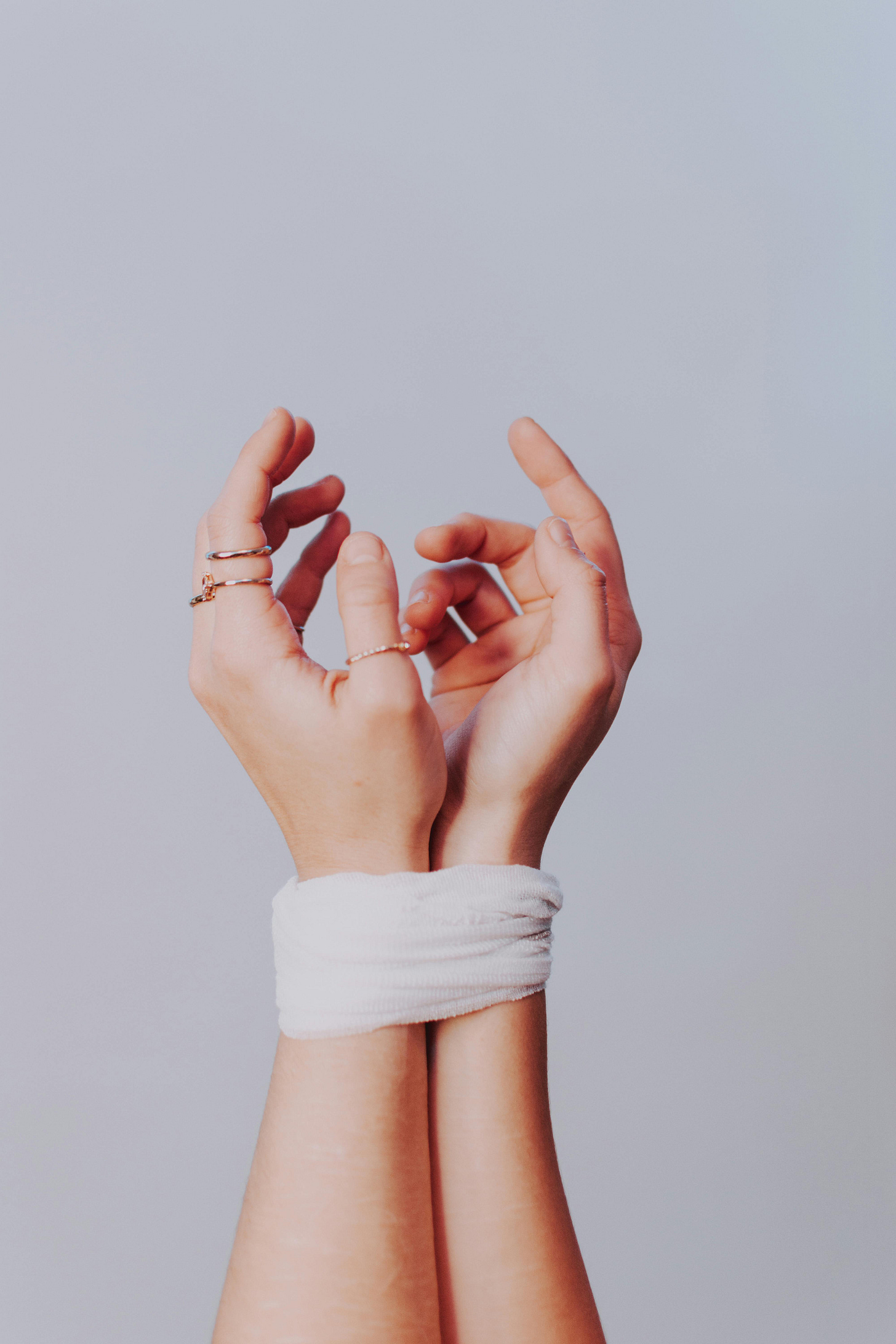RELATIONSHIP 💑
OR TRAUMA BOND?
No matter what kind of relationship we find ourselves in, we need to acknowledge and find out if it is good and healthy for us.
Firstly you need to find out how a relationship makes YOU feel. It is irrelevant what others think or say or if that relationship makes sense to them. It only needs to make sense to you and your partner. A relationship should never be a community project.
Having said this, let’s get to the more juicy bits.
When you meet someone new, look closely because usually, they show you their true colours quite quickly. They may try to hide them at first but they will come through. The biggest mistake we can make is trying to repaint them.
Sometimes we don’t even notice that we are in a toxic or unhealthy relationship. And when you try to save a toxic relationship or an abusive person, that is not a relationship or love but a trauma response. But how do you know that you are in such an unhealthy relationship or a trauma bond?
“They say that love is blind, but it's trauma that's blind. Love sees what is.” — Neil Strauss
There are some indicators and here are a few of them:
seeking comfort from the same person that is causing you harm
repeated on-again / off-again relationship without improvement
recognising the toxicity of the relationship and choosing to stay in it
feeling obsessive towards them and like you can’t live without them
justifying, and even defending the hurtful things they say and do
taking the blame for “triggering” them when they were hurtful
believing they will change for you and that you can “fix” them
isolating yourself that others aren’t aware of how bad things really are
logically identifying how the relationship is hurting you, but emotionally being unable to remove yourself from it
lying to others about the relationship out of embarrassment
intense chemistry and physical intimacy due to being unsure of how long you will be in connection before the next fallout
When you are honest with yourself and see more than three of the above in your relationship as true, it is time to take a closer look at what you are dealing with. Of course, these are only indicators and the circumstances and the dynamics of every relationship are very different. Sometimes it already helps to understand and realise that the dynamics are unhealthy to be able to make different choices and decisions as well as changing something significantly to eliminate the toxicity from a relationship.
Look very closely at the person you are with:
“When someone shows you who they are, believe them the first time.”
— Maya Angelou
I have written about it so many times and it is still one of the most important factors in any relationship - always having effective, open and especially honest communication is crucial. Communication is so much more than talking on the phone for countless hours at night before you decide to fall asleep. It’s only the quality of the conversation that truly matters - always.
“Someone who has experienced trauma also has gifts to offer all of us - in their depth, their knowledge of our universal vulnerability, and their experience of the power of compassion.” — Sharon Salzberg
Pursue a relationship with someone who wants to learn and know the smallest details about you. Like the time you wake up, how you like your coffee, your favorite smell, your love language, and what movies make you cry. That’s what’s worth pursuing.
Another important factor in a relationship is a person's morals, standards, and mindset. Those are the things that will make them a good spouse and parent. Not their looks, as these fade eventually, so choose wisely.
Another interesting indicator if you are in a good or a toxic relationship is how they behave when you are apart. Are you in contact, do you feel cared for even in their absence? If your absence doesn't affect them, then your presence never mattered to them much either.
Another sign that you may be more in a trauma bond than in a healthy relationship is if you keep "giving the benefit of the doubt". Often this is our way of disrespecting our own boundaries with a delusional belief that they will or want to change.
A trauma bond can significantly damage your mental, emotional, and physical health. Cycles of intermittent positive and negative reinforcement make it extremely hard to walk away from these relationships and change the underlying dynamics of an abusive relationship. Therefore, an effective way to free yourself from a trauma bond is to make the decision to have no contact or low contact with the other person. This can be a complex process that requires deep thought and strong support.
One key mindset shift is learning to accept and love yourself rather than relying on someone else to love you. People in a trauma bond may be waiting for their partner, family member, or loved one to finally see their worth and love them. But this is part of the cycle of a trauma bond, so an important skill in separating yourself is learning not to wait for others but to love yourself.
But when you realise something is just not right and when you start to wonder if you deserve better..... You do! Don‘t settle for the bare minimum.
In summary, a trauma bond is an emotional attachment that can form in an abusive relationship, specifically the connection the victim feels toward the perpetrator.
A trauma bond is characterized by cycles of negative reinforcement interspersed with occasional bursts of positive reinforcement; this so-called intermittent reinforcement makes it very difficult to leave an abusive relationship. A trauma bond in a relationship involves a foundation of abuse, which may hinge on tactics such as threats of harm, manipulation, control, shaming, gaslighting, and sabotage, mixed with intermittent moments of calm and displays of affection. This pattern of highs and lows increases a victim’s unhealthy attachment to the abuser, which helps maintain the relationship. But with support, healing is always possible.
As always, knowing what you are dealing with is the first step towards healing. Women and men are equally affected and the Enneagram can also be helpful in uncovering certain patterns and behaviours. In my practice I am seeing more of these relationships and perhaps it is something to think about without over-analysing your own relationship.
Stop crossing oceans for people who wouldn't jump over a puddle for you.
“If you love someone, set them free. If they come back they're yours; if they don't they never were.” — Richard Bach
Someone who loves you will always build you up and not put you down!
🎶My Song of the Week
Is an oldie by Rose Royce - Love Don’t Live Here Anymore
For more good music, go to this Spotify playlist where you can find all the songs from the Change & Evolve Letters!
📚My Poem of the Week
Is by Emily Dickinson (1830-1886)
After great pain a formal feeling comes
After great pain, a formal feeling comes – The Nerves sit ceremonious, like Tombs – The stiff Heart questions ‘was it He, that bore,’ And ‘Yesterday, or Centuries before’? The Feet, mechanical, go round – A Wooden way Of Ground, or Air, or Ought – Regardless grown, A Quartz contentment, like a stone – This is the Hour of Lead – Remembered, if outlived, As Freezing persons, recollect the Snow – First – Chill – then Stupor – then the letting go –
👀Impressions
The winter wonderland view from my balcony ❄️
Have you ever been in a trauma bond or a toxic relationship? How did you deal with it and how did you remove yourself from it?
Let me know your thoughts in the comments or send me a message. I very much enjoy hearing from you.
Wishing you a gorgeous weekend.
Yours
Tanja 🤗




Oh dear, three and a half I think, but I am working on the half.
"As Freezing persons, recollect the Snow" - that is a cracking line, speaking as a warm person trying to imagine how a freezing person would recollect it, and knowing that when I was a freezing person I was aware I could never explain it to my warm self.
Great insights Tanja and reminded me of your posts on narcissism. It’s sometimes possible to find yourself in a minefield with no map to get out!